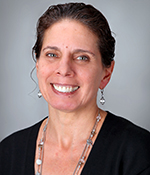Manning Up To Eliminate HPV
The HPV vaccine has been proven to prevent cancer in both men and woman. So why aren’t more parents vaccinating their children – and especially their boys?
Researchers from Johns Hopkins Hospital looked at a 2015 national survey on HPV vaccination and found that 63 percent of girls ages 13 to 17 had been given the HPV vaccination, compared to 50 percent of boys in the same age group.
They presented their study this week at the Society of Gynecologic Oncology’s Annual Meeting on Women’s Cancers.
So why the gender gap? In reviewing the 2015 survey, researchers examined the reasons parents gave for their children not receiving the vaccine. About 20 percent of the parents of boys said their health care provider did not recommend the HPV vaccine, compared to about 10 percent of girls' parents. The most common reason for not getting the vaccine among both genders was the belief it was not necessary.

Dr. Anna Giuliano
"One in 20 cancers is caused by HPV infection. With proper vaccination we could eliminate all of these cancers, with cervical cancer being the first that we see drop to near zero," said Dr. Anna Giuliano, director of Moffitt Cancer Center’s Center for Immunization and Infection Research in Cancer. "We have the tools to do it, but unless we utilize the tools we aren’t going to see that happen.
"One of the most important tools is the HPV vaccine and that doesn’t mean a few kids here and there," she said. "It means vaccinating everyone."
HPV vaccination protects against the most common types of HPV that cause cancer. The vaccine is recommended for females ages 9 to 26 and males ages 9 to 21. The Florida Department of Health provides the vaccine for free up to age 18. And in most cases, the HPV vaccine is covered by health insurance.
To learn more about HPV screening and vaccination, visit Moffitt.org/HPV.



